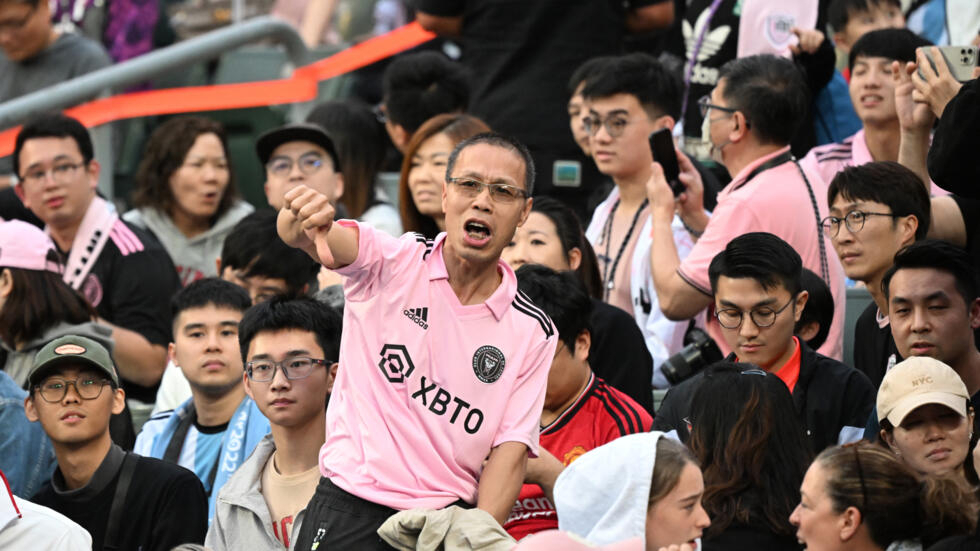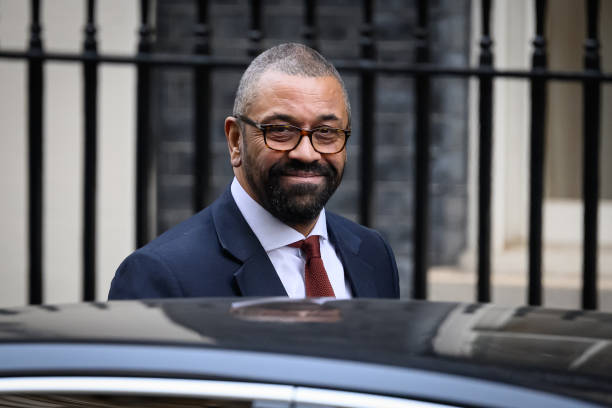Table of Contents
ToggleMessi China saga:
Controversy arose when Messi did not play in a friendly match between Hong Kong FC and Inter Miami in Hong Kong. The reaction of Chinese fans to Lionel Messi’s absence in the Hong Kong match and subsequent participation in the Japan match was one of disappointment and frustration. Many fans in Hong Kong were dismayed when Messi did not play in the highly anticipated Inter Miami match, with some demanding refunds and expressing their disappointment.
Subsequent match: Messi featured
The situation was further exacerbated when Messi came on as a substitute in the match against Vissel Kobe in Japan, just three days after his absence in Hong Kong. This led to widespread criticism and suspicion, with some fans feeling that Messi’s actions had gone beyond the realm of sports. The controversy dominated Chinese social media, with hundreds of millions of daily engagements on related topics. Messi later apologized to his Chinese fans on Weibo, expressing regret that he was unable to play in Hong Kong due to an injury and hoping for the opportunity to return and play a game in the future.
Impact of Messi Hong Kong Saga:
Lionel Messi’s absence from the friendly match in Hong Kong has had a negative impact on his reputation in China. Messi has a gigantic fanbase in China. Additionally, the impact of this incident has been described as extending beyond the realm of sports. Some commentators questioned Messi’s absence could potentially impact his partnerships with Chinese brands. The controversy over Messi’s absence from the match has generated significant attention, reflecting his global influence and the high expectations associated with his appearances.
Fallout:
The fallout from Lionel Messi’s absence in the Hong Kong match has led to the cancellation of two friendly matches featuring world champions Argentina in China. The Beijing Football Association cancelled Argentina’s scheduled friendly against Ivory Coast in Beijing in March, stating that “Beijing does not plan, for the moment, to organize the match in which Lionel Messi was to participate.” Additionally, Chinese sports authorities cancelled Argentina’s scheduled exhibition match against Nigeria. The controversy over Messi’s absence and subsequent participation in a match in Japan has sparked widespread disappointment and frustration, leading to the cancellation of the friendly matches and significant public backlash.
Lack of transparency:
The incident raises valid concerns about transparency and communication with fans. It is crucial for clubs and players to disclose the player’s injury status before the match, ensuring that fans are aware and can make informed decisions about attending the event. Selling tickets without transparent communication may lead to disillusionment among fans who feel they were not adequately informed, potentially undermining trust and fan loyalty.
Political motive:
Moreover, the political dynamics between Argentina and China, combined with Messi’s and Martino’s Argentinean background, introduce an intriguing dimension to the controversy. The shifting political stance of the Argentine government, led by President Javier Milei, towards the United States and away from China raises questions about potential political motives. The fact that Messi plays in the USA, widely considered anti-China, and that Inter Miami’s manager, David Beckham, hails from USA allies’ country, Britain, adds complexity to the situation. This arises a question, is there genuinely a political motive behind the issue given all these factors?
Readers' Viewpoint:
What are your thoughts on the controversy surrounding Messi’s absence in the Hong Kong match? Do you believe the injury explanation is sufficient, or do you share concerns about transparency with fans? Additionally, considering the political tensions between Argentina and China, do you think there might be political motives behind Messi and Inter Miami’s decisions? How do you perceive the role of Messi, an Argentinean player, and Martino, an Argentinean manager, in this context, especially considering their association with a club in the USA, which has strained relations with China? Share your opinions and perspectives on this complex issue in the comment below.
Who is Gerardo Martino:
Gerardo Martino, also known as “Tata” Martino, is an Argentine football manager and former player. He was born on November 20, 1962, in Rosario, Argentina. Martino is currently the head coach of Inter Miami CF. He has managed various clubs and national teams, including Barcelona, Atlanta United, and the Mexico national team. Martino has also had a successful managerial career in Paraguay, winning several titles with clubs such as Libertad and Cerro Porteño. As a player, he represented Newell’s Old Boys and the Argentina national team.
Lionel Messi:
Lionel Messi is an Argentine professional footballer widely regarded as one of the greatest players of all time. He currently plays for Inter Miami CF, a club in Major League Soccer (MLS) in the United States. Messi’s popularity extends across the world, including in China, where he has a significant fan base. He spent the majority of his professional career at Barcelona, where he won numerous titles, including the UEFA Champions League and La Liga. In 2021, he moved to Paris Saint-Germain and later joined Inter Miami in 2023. Messi has also been a key player for the Argentine national team, winning the 2022 FIFA World Cup and the 2021 Copa América. Throughout his career, Messi has won a record-setting eight Ballon d’Or awards as the world’s top player.
Political viewpoint:
The saga has drawn attention to the potential political motives behind the actions of Messi and Inter Miami, with some suggesting that external forces deliberately sought to embarrass Hong Kong. The fallout from Messi’s non-participation in the match has raised concerns about its impact on Hong Kong’s image and reputation, as well as its potential implications for future international events in the region.
Argentina China Current Relationship:
The current government of Argentina, led by President Javier Milei, has signalled a shift in its foreign and economic policy, expressing dissatisfaction with China and a desire to align more closely with the United States. Milei has pledged to withdraw Argentina’s application to join the BRICS alliance, downgrade diplomatic ties with China and Russia, and adopt a more pragmatic stance, emphasizing greater cooperation with the United States and the West. Concerns over China’s growing economic presence in Argentina, including significant investments and infrastructure projects, as well as the deepening economic crisis in the country, partly motivate this shift. Additionally, Argentina’s relationship with China has become a contentious issue in the context of the country’s domestic political dynamics, with Milei’s far-right populist government seeking to distance itself from perceived communist influences and pursue a more pro-Western orientation.
China approach to Milei’s
government:
government:
Despite shifts in Argentina’s political landscape, including the election of President Javier Milei, China remains committed to working with Argentine authorities and maintaining its economic and trade partnerships. China seeks to sustain its economic and diplomatic ties with Argentina, viewing the relationship as mutually beneficial. The relationship between China and Argentina is based on a growing economic interdependence, with China being a key market for Argentine exports, particularly in the agribusiness sector.
Additionally, China has provided direct financial support and currency interventions to stabilize the Argentinian peso exchange rate, which has been instrumental in maintaining Argentina’s public accounts. Despite potential shifts in rhetoric and foreign policy priorities, both China and Argentina expect to continue their fundamental economic and trade relationship as it mutually benefits both countries.
Conclusion
In conclusion, the Messi Hong Kong Saga has unfolded as a multifaceted controversy, intertwining issues of transparency, fan communication, and potential political motives. The disappointment among Chinese fans over Messi’s absence, coupled with subsequent political ramifications leading to match cancellations, has underscored the far-reaching impact of this incident. The lack of transparency in communicating Messi’s injury status raises concerns about fan trust, emphasizing the importance of clear communication in the sports industry. The controversy’s geopolitical dimension, intertwined with Argentina’s evolving relationship with China, adds complexity to the situation. Despite the challenges, China remains committed to its economic ties with Argentina, highlighting the intricate interplay of sports, politics, and international relations that shape the narrative around one of the world’s most renowned footballers and his team.
Is the ‘India Out’ policy proving to be costly for the Maldives?









